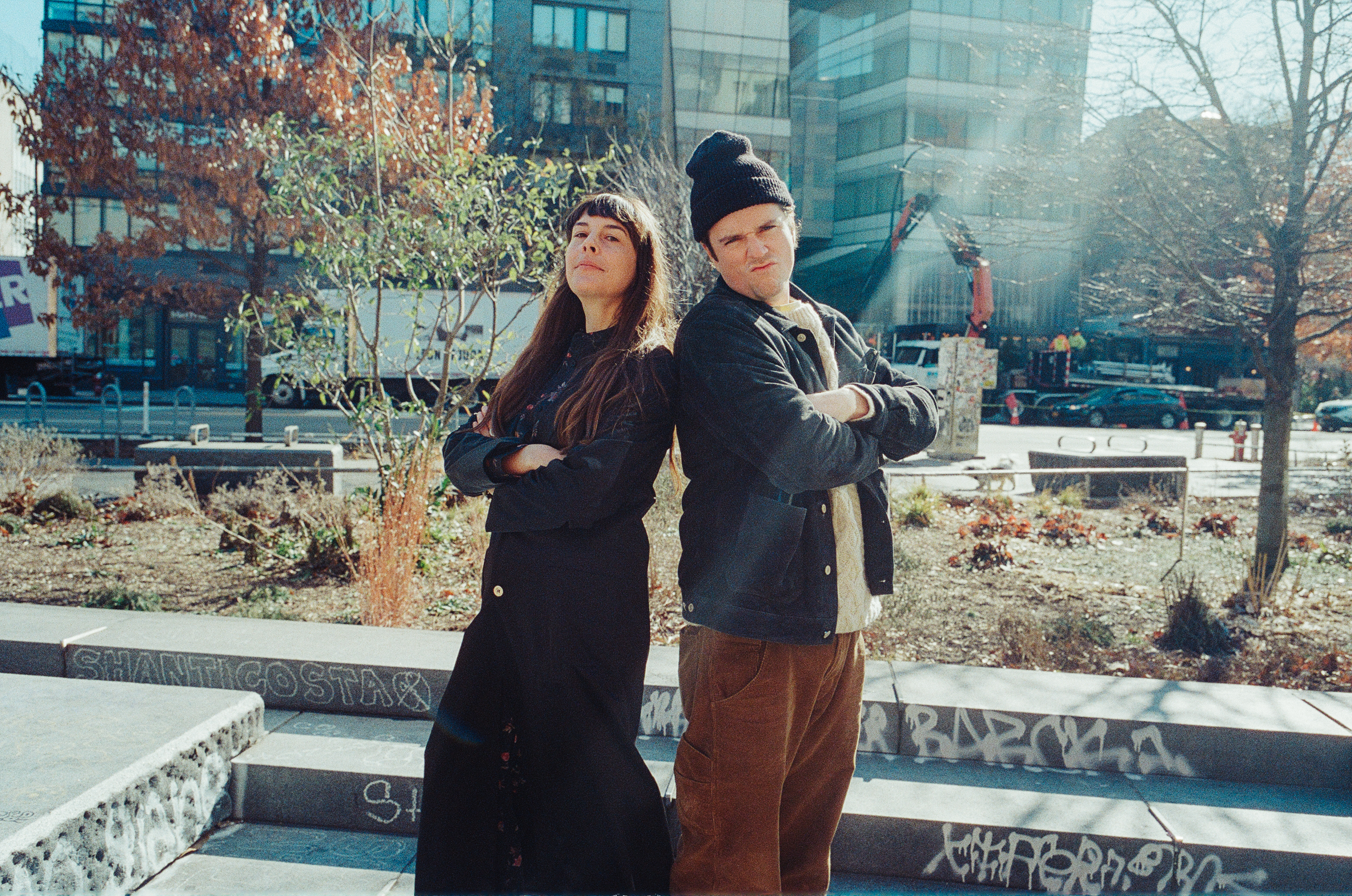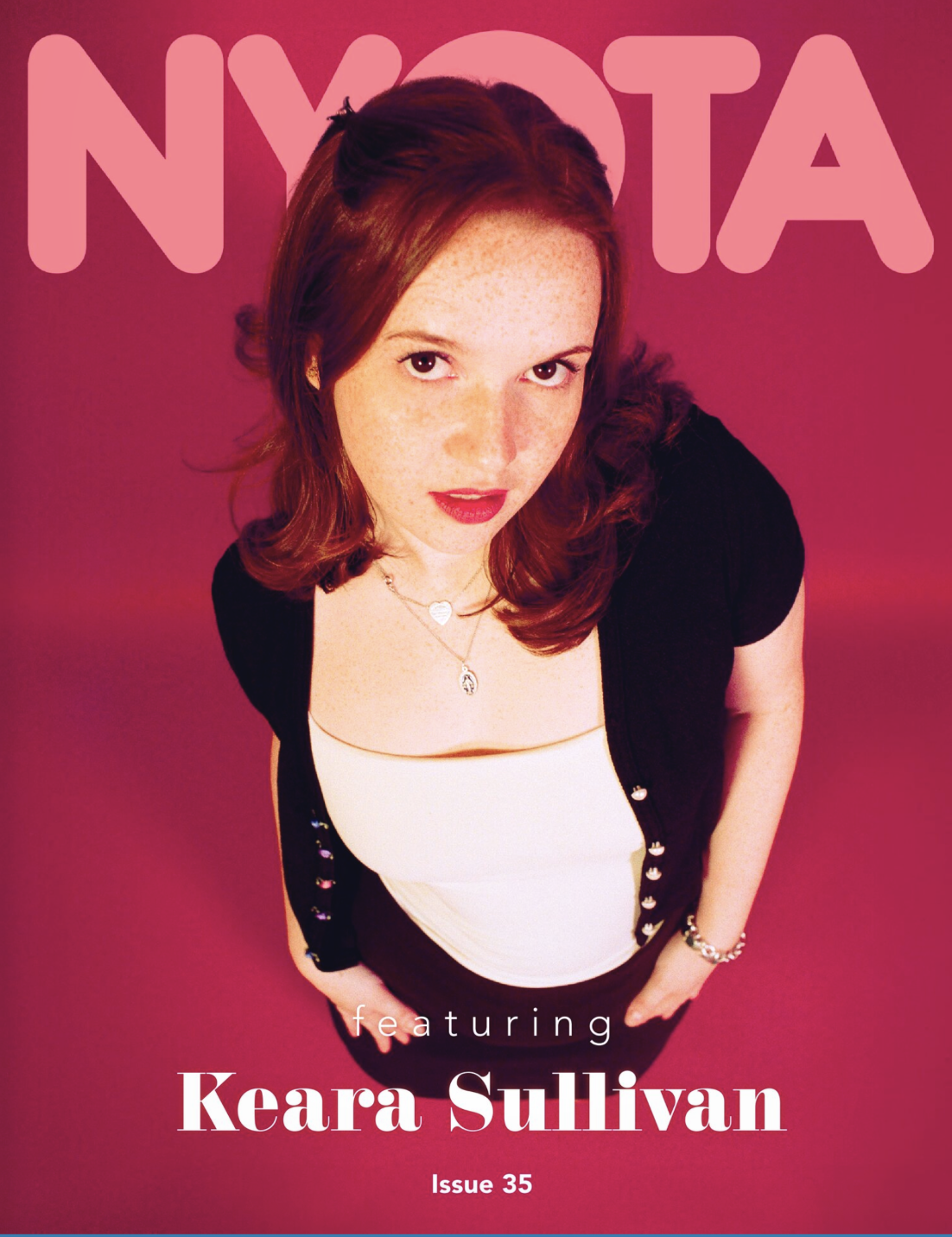We’re going into the NYOTA archives to find some of our favorite interviews that weren’t originally shared on the site.
Jack Coyne studied film in college and used to have his own YouTube channel where he created content focused on making it in NYC, so it should not be a surprise that he co-created a media company called Public Opinion based in the heart of New York City. Coyne talked to NYOTA about the future of Public Opinion, creating Track Star, and his advice for aspiring creators.

Prior to studying film in college and having the opportunity to truly dive into the subject. How did you keep your passion for film alive and teach yourself about the industry?
The first time I thought of the art of filmmaking was when I watched Goodfellas for the first time as a youngish teenager. I realized that the director was making really specific choices about how the camera was moving and what music was being used to add emotion to the scenes. I always loved watching movies and TV as a kid, but this was the point when I realized, like okay, picking up a camera and filming stuff could actually be a job. This unlocked a new way of thinking about movies for me. The other thing I realized probably later in high school is how much entertainment brings people joy, and that’s what really made me want to pursue it as a job. Like, I could help make people happy by telling stories with video and that’s a really special thing to be able to do.
Looking at your old YouTube videos, you made content about a wide variety of subjects and connected with numerous creatives along the way. During that time period, did you gain a lot of new skills and connections that are still helpful to you today?
Yes. I’ve been doing more or less the same thing since I was in college: say something through video. Sometimes this was as an assistant for my first boss, Casey Neistat. Sometimes this was shooting music videos for my friends in college. Later it was producing videos at CNN or making YouTube videos about trips I went on. Every time you make something you’re going to get a little bit better at it and the more frequently you do it the more it becomes an instinct instead of this thing you’re trying super hard to figure out each time. You also figure out more and more what you like and what you want to focus on and you meet tons of people along the way who specialize in the thing you’re not as good at. Filmmaking is a team sport and you want to surround yourself with the best possible team. You meet the best people by putting yourself out there for many years.
Starting a production company is no easy feat. What were some of the initial challenges when it came to getting Public Opinion off the ground, and what did you learn from those challenges?
The biggest challenge was making sure we’d have enough work to keep the lights on but also enough flexibility to create the stuff we really wanted to make. The reason we were able to do this was because of the years of work we put in prior to starting this company and the people we met along the way. I think myself and my partners all had reputations for being pretty hardworking and capable people. From an original content standpoint the breakthrough for us was deciding we wanted to shift our focus from just interviewing regular people on the street to making more in-depth documentaries about the people and the departments that keep NYC running. A big challenge for us was getting a foot in the door at these places. The Department of Sanitation isn’t totally inclined to let someone who makes TikToks come behind the scenes, but once we got a foot in the door with one department, we were able to sort of show everyone else what our POV is and that we have positive intentions.
When it comes to creating more commercial content through Public Opinion, how do you and the team determine what’s worth pursuing and what projects to say no to?
The easy answer is money and time. If a job pays really well it’s worth taking on cause it gives us flexibility to do our own editorial projects. Sometimes the budget is small but we get the right amount of creative freedom to make something that we think is really great. Those types of projects are not only fun, but they also often lead to other things down the line with a bigger budget. I also think it’s really empowering to say no to projects. The more time you do creative work for a living, the more you understand the value of your work and how much you want to charge; if people go below your rate and you’re not going to get anything else out of it, you should be confident in saying no.

Tell our readers a bit about Track Star. Where did the initial idea for the show come from, and did you expect it to resonate with viewers in the way that it has?
I’d spent like six months interviewing people on the street totally focused on NYC trivia and it was an amazing education in speaking with strangers and making them feel comfortable but the hard part of this project was finding people who could answer trivia questions about NYC. It’s kind of a niche subject and I wanted to come up with something that was a bit more universal; hence music. I had the idea of the format and how the entire show would look and feel in my head for like three months before I just said one day let’s try this. I was very, very confident it would work as a format because of the work we put in with the NYC trivia concept. I’m really glad people like the show but I think a lot of that has to do with the fact that people really love music.
How do you usually approach people to get them to participate in the show and has it been rewarding to connect with people from all walks of life through music?
I typically stand somewhere with a lot of foot traffic and hold up a sign that explains what I’m looking for. Like “Name the musician win $.” I never wanted to be the person running up to someone with a camera in their face but making eye contact with someone and showing this sign feels pretty low-key. If you can come up with something intriguing for the sign, people will come to you. It’s been incredibly rewarding connecting with people from all walks of life, not just through music, but in general. Talking to strangers consistently gives you a lot of faith in humanity. People are generally really kind and care about each other. Talking about music is just a vehicle to connect with people.
In the future, how do you see Public Opinion evolving, and how do you see your own career in the film and media industry evolving over time? Are there areas of the industry that you would like to get experience in that you haven’t yet?
Core to Public Opinion is the idea of talking to people, right? That’s where we got the name. I think there’s so many ways we can take that, but big picture, the idea is to continue launching new shows in a variety of formats for all different platforms. Media is evolving a lot and will continue to shift over the next 5-10 years, so we just want to navigate those changes and stay in business and keep telling stories that impact people.
What advice do you have for aspiring creators?
Make as much stuff as possible. There are so many ways to share your work with the world and get it out there, but it’s more about finding the motivation within yourself to keep making things so you continue to hone your creative voice.
This story first ran in Issue 35. Read more from the Issue here




